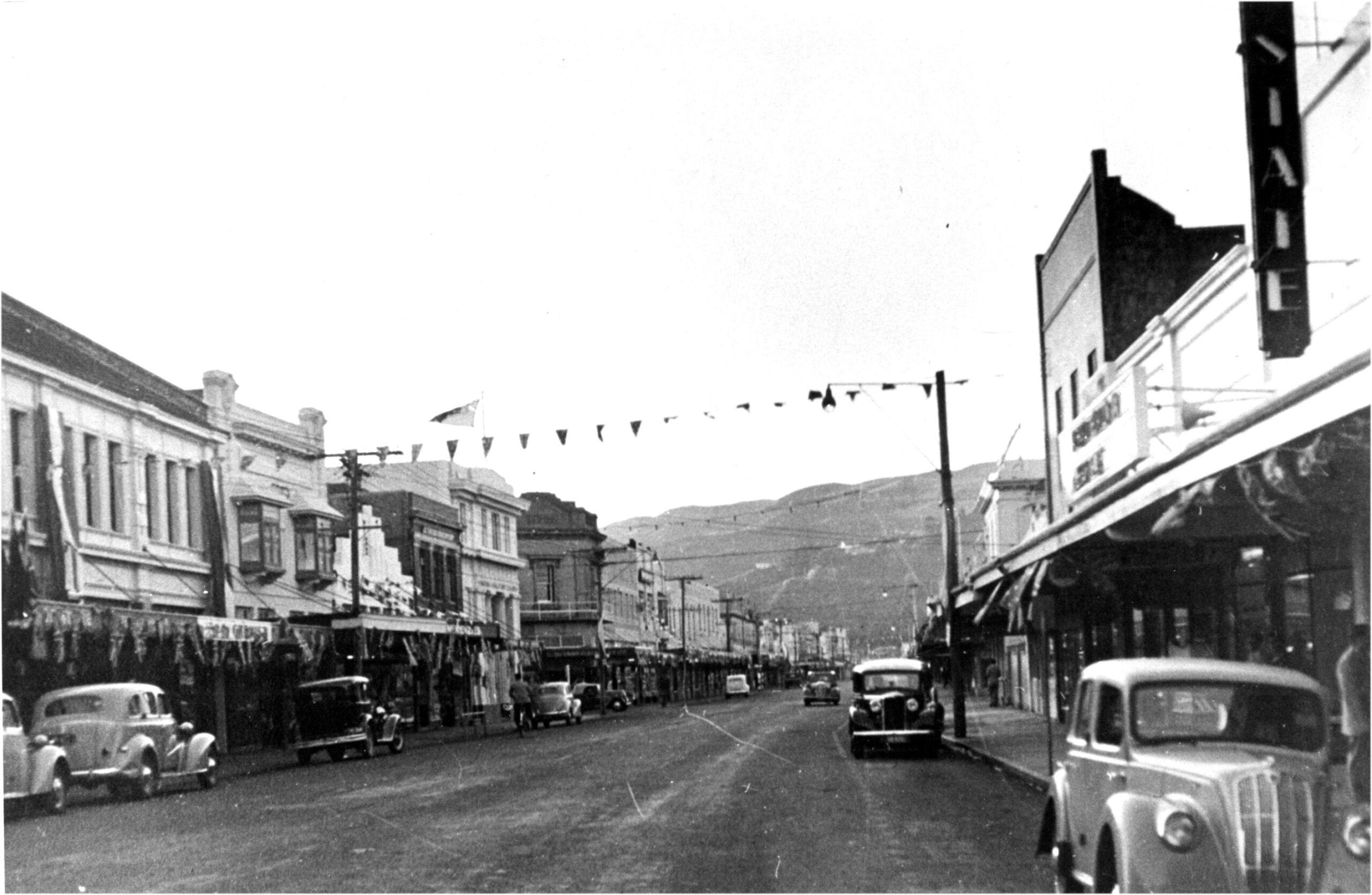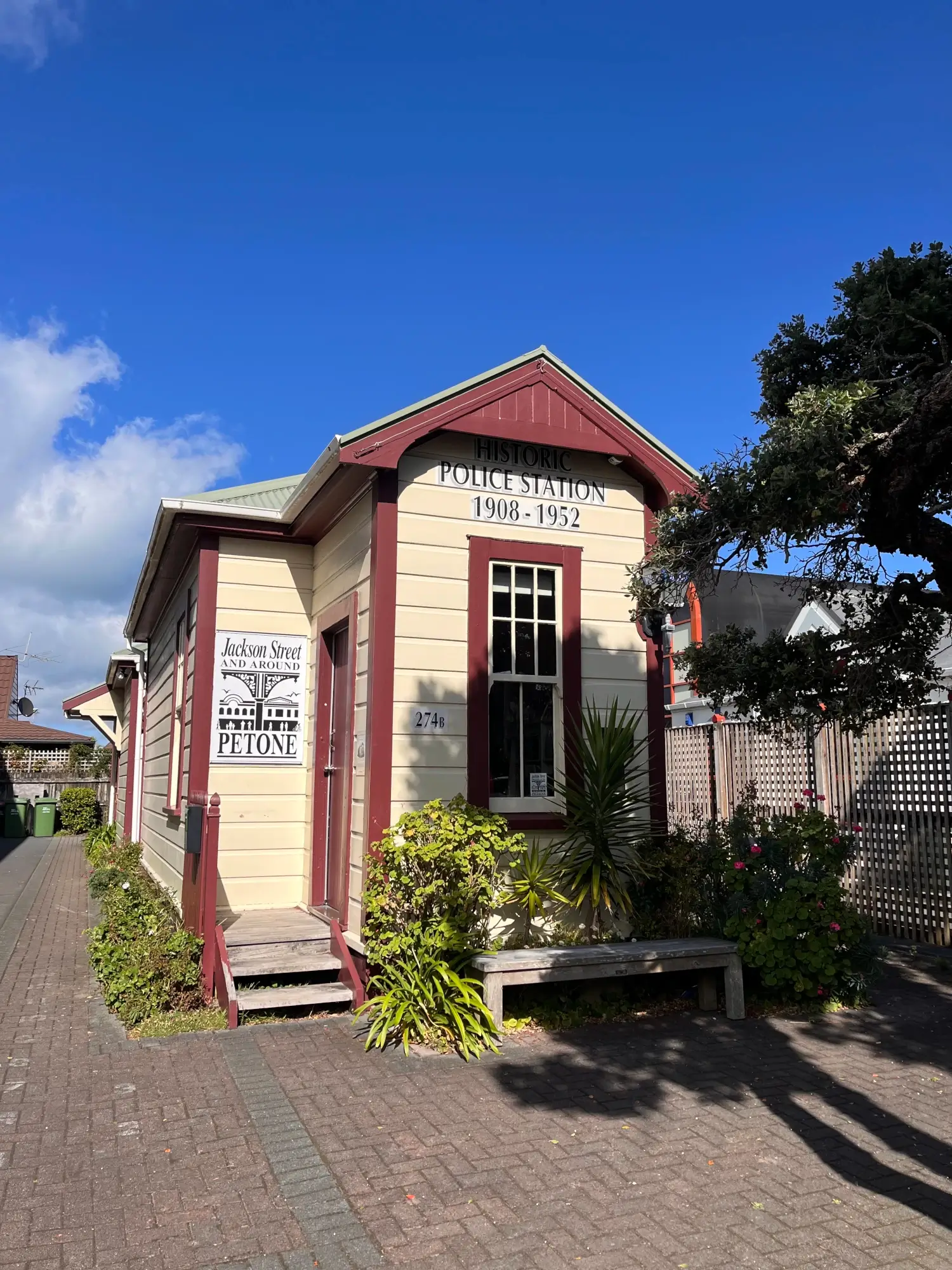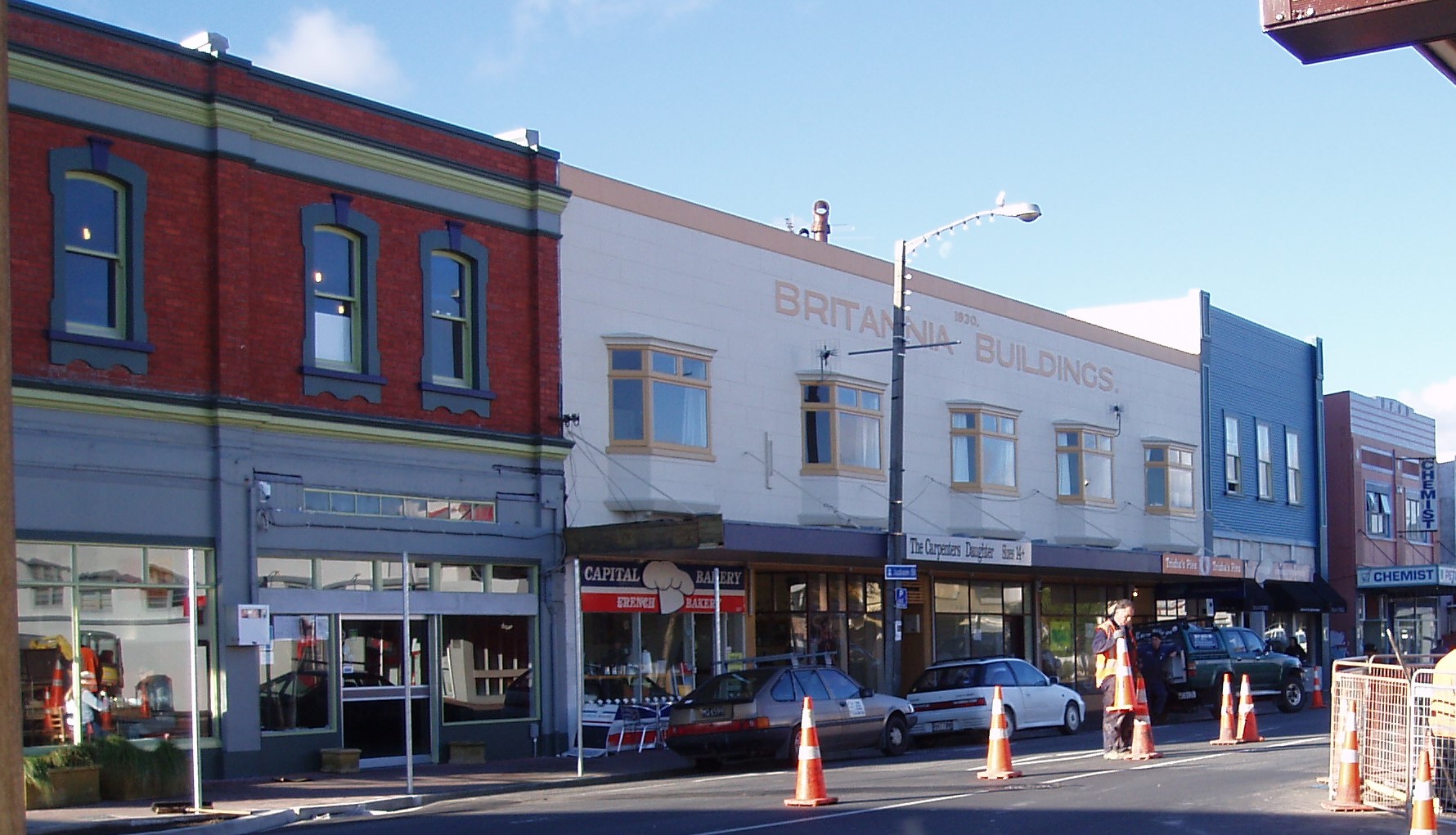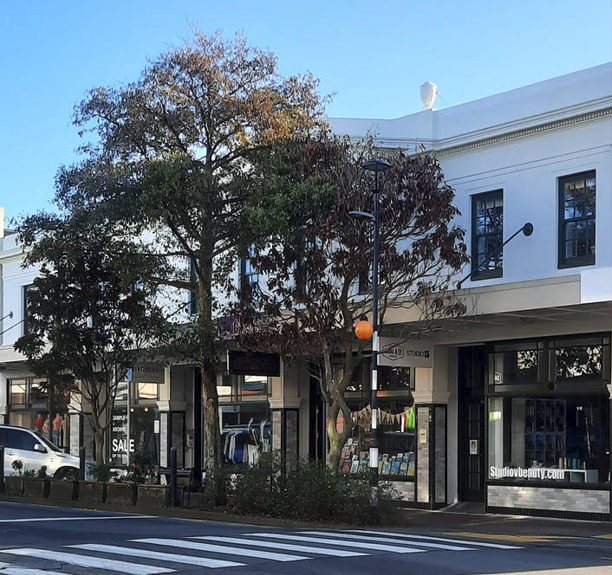Jackson Street Programme Inc.
Jackson Street has always been a busy street.
In the 1890s there were several shops spread along Jackson Street between Nelson and Beach Streets, and Petone was said to resemble a wild west town!
In the early 1900s it began to take on the appearance of the major shopping street in the Hutt Valley
And this continued until after World War 1. Jackson Street was more than just about shopping. Between the wars and well into the 1950s, the main shopping night was Friday – for many Petone people this was more than simply a shopping time, with families walking Jackson Street and meeting up with many friends and acquaintances. During World War II the town was full of American Marines who were stationed at Hutt Park – the street was busy and lively.

In the 1980s there was concern about the state of Jackson Street as shops began to close, this was mainly due to major industries having closed like the Gear Meat Company or moved away such as General Motors. Because of this, developers left Jackson Street buildings alone to concentrate on demolishing and rebuilding the Wellington CDB – it was thought Jackson Street buildings had no value. The small shopkeepers struggled on, and many second-hand shops appeared to cater for the many people who rented homes.
By 1990 something had to be done if Petone and Jackson Street were to survive. Petone was a place that was well situated within the region’s centres of activity – a nexus point between Wellington and Lower Hutt CBDs – and offered opportunities for affordable housing and commercial/retail enterprises.
Roy Hewson, former Deputy Mayor of Petone, and Hutt City Councillor, had become very concerned about the state of Jackson Street. He presented a paper to the Hutt Business Development Committee to create a heritage area for Jackson Street. $30,000 was provided to assist in strengthening the heritage of the Street. An additional $20,000 was provided to engage with architect Ian Athfield and local town planner Sylvia Allan, to create a proposal to help promote heritage in the area. The Hutt City Council began to see advantages in a Mainstreet Programme for Petone, so a meeting was called where over 100 business people attended and the Jackson Street Programme (JSP) * was formed in November 1991.
The JSP was based on four committees:
- Administration
- Heritage and Design
- Business Development
- Marketing and Promotions
The first Chairperson was Louise Smith, who gave the JSP a working space in her building at 216 Jackson Street, but it was soon found that to make any significant difference there needed to be a paid Co-ordinator. Roy Cox was appointed as the first full-time Co-ordinator, and due to his outgoing personality, he marketed Jackson Street in many varied ways. Roy even managed to convince the Petone Police to give the former Police Station and Lockup (old jail) in Elizabeth Street to the JSP to use as an office and a museum! The museum was seen as a tourist opportunity, with Roy Hewson and the Petone Historical Society looking after it on the JSP’s behalf.
At the time theft was a big issue in Petone. Roy Cox worked with the local Youth Aid Constable, Eugene Paea, to get young offenders to work for a year restoring the former Police Station and Lockup. It was found that the young offenders were so tired due to working full-time restoring the buildings, that thefts decreased significantly in Petone. Many of the young men, known as “Roy’s Boys”, then went onto full-time work as painters and decorators.
In 1992, the JSP became an incorporated society.

From the start, the JSP has been a strong promoter of heritage values and began a programme of producing plaques for commercial buildings on Jackson Street that had notable stories. Along with the plaques on the footpaths – Walk of Champions – honouring Petone sportspeople, these continue to be of interest to many people, not just residents.
In 1996, the Historic Places Trust recognised Jackson Street as an Historic Precinct.
By the early 2000s Jackson Street took on a whole new flavour. Eating places, specialty food stores and boutique shops, as well as art galleries were the new style. People were coming back to Petone because of the interesting activities taking place in Jackson Street. A major influence was the opening of the big box retail at the western end of the street. These stores brought thousands to Petone, and the street prospered along with the rest of the town. Jackson Street was being recognised as a destination.

Between 1992 and 2013 there were six Co-ordinators and ten Chairpersons. The Co-ordinator reports to a Board of up to 12 volunteers made up of business and building owners of Jackson Street.
In July 2013 (and to present day – February 2025), the JSP Board appointed Hellen Swales as Co-ordinator. Hellen changed the way the JSP operated by working part-time and employing an Administrator / Heritage Officer to also work part-time (September 2013 to present day – February 2025). The JSP took back the management of the Old Jail Museum from the Petone Historical Society.
In 2017 a website and social media person was employed, and in the same year, Roy Hewson “officially retired” from organising the Walk of Champions handing it back to the JSP office.

As the years have gone on, the needs of those who own buildings and/or businesses on Jackson Street have changed. More emphasis is being placed on marketing, activities to bring families onto the Street, supporting the building and/or business owners with central and local government matters such as consents, licenses, grants, earthquake strengthening and more. Strip shopping is now competing with online shopping, big-box retail and malls. The JSP has supported the retailers and helped them to diversify and get up to speed on internet shopping. This has been especially important during the era of the Covid pandemic.
New ideas, murals and events have enhanced the look and feel of Jackson Street as the Jackson Street Programme enters its fourth decade. The Street is widely seen in the Wellington region as a hub for shopping, hospitality, tourism and heritage. **
While the way we shop and eat out has changed over the last 30 or so years, the JSP’s mission hasn’t changed:
“Our mission is to promote, preserve and enhance Jackson Street
as a successful heritage, retail and commercial area”
* the JSP is paid by a targeted levy on the building owners of Jackson Street, between Hutt Road and Cuba Street. The JSP is independent of the Hutt City Council – it works for the building owners and businesses of Jackson Street only.
** as of February 2025, the JSP is supporting 225 businesses
